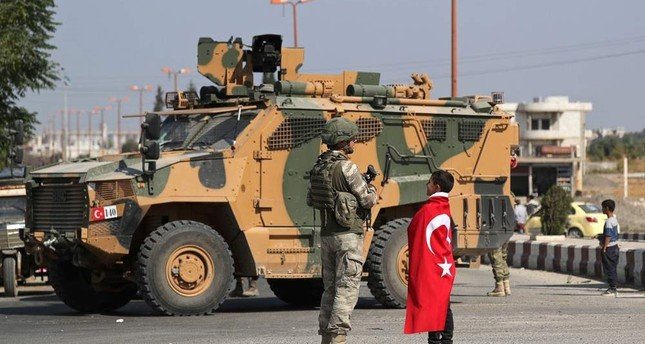
- ARAB NEWS
- 11 Jul 2025

Sinem Cengiz, Dubai
There is a well-known Turkish proverb that says: “An old friend cannot be an enemy.” I will reverse this saying and ask: “Can an old foe be a friend again?” One asks this question after reports of the first official talks in years between the heads of the Turkish and Syrian intelligence agencies on Monday.
Turkish National Intelligence Organization chief Hakan Fidan and Lt. Gen. Ali Mamlouk, special security adviser to Bashar Assad, reportedly met on the sidelines of peace negotiations in Moscow.
An anonymous Turkish official, quoted by Reuters, stated that the discussions included “the possibility of working together against YPG, the terrorist organization PKK’s Syrian component, in the east of the Euphrates River.” The state-run Syrian Arab News Agency (SANA) denied reports that Mamlouk had held talks with his Turkish counterpart, adding that, at the trilateral meeting mediated by Russia, the Syrians demanded Turkey respect their country’s sovereignty and immediately withdraw its forces.
Both sides’ explanations regarding the content of the meeting may differ since it is always hard to confirm this kind of meeting.
However, this apparent summit, after years of hostility, should be considered to be a positive, but not a turning point as some suggest. It was the first time — publicly at least — that top Turkish and Syrian spies had come together as part of the Syrian-Turkish-Russian tripartite.
Needless to say, although Ankara and Damascus do not have diplomatic relations, there have been similar (military and intelligence) contact between the two parties in the past.
Even last year, in February, Turkish President Recep Tayyip Erdogan admitted that the two countries were maintaining low-level dialogue through their intelligence agencies, although the meetings were never disclosed to the media.
The first low-level get-together was held in 2018 during cease-fire negotiations for Idlib. Last October, a senior Assad adviser hinted at the possibility of holding Russian-brokered talks with Ankara’s representatives in the Russian city of Sochi, where Moscow often holds peace talks on Syria.
For some time, there have been reports indicating Turkey no longer insists on Assad’s withdrawal from power.
There were even suggestions that Foreign Minister Mevlut Cavusoglu stated that Turkey would consider working with Assad if he won a democratic election.
In recent years, some countries have reopened their embassies in Damascus, which was considered a major shift in the policies of anti-Assad states and a sign of improving relations between the regime and his Arab adversaries.
Although Monday’s meeting was not interpreted as politically significant in Ankara or Damascus, it reflects that a new door, certainly via Moscow, has been opened for the future of the Syrian conflict and the dialogues it shapes.
The background to this meeting is as significant as the meeting itself.
A day before visiting Istanbul on Jan. 8, Russian President Vladimir Putin made a visit to Syria — his first since 2017.
Russia has been trying to bring Syria and Turkey closer in order to agree on a solution for the Idlib region in northwestern Syria. Turkey has long been expressing concerns over the attacks on Idlib by the Syrian regime.
Following talks between Turkish and Russian leaders on Jan. 8, a new cease-fire was announced between Damascus and the opposition groups in the Idlib province. Moscow has long been pressing Turkey to agree to talk with Syria in the context of the 1998 Adana agreement on the fight against terrorism.
From the other side, Turkey and Russia both agree on Syrian territorial integrity, which puts them on the same page regarding the separatists in the northern part of the country.
This apparent summit should be considered to be a positive, but not a turning point as some suggest.
Sinem Cengiz
Thus, Putin wanted to kill two birds with one stone by organizing intra-Libyan talks in the Russian capital on the same day as the significant meeting between the top spies of Turkey and Syria. Otherwise, the latter meeting may have been unlikely. From the Turkish side, the high-level delegation included Cavusoglu and Defense Minister Hulusi Akar, who were involved in the discussions on the Libya crisis that has engaged both Russia and Turkey.
Coming back to my initial question, “Can an old foe be a friend again?” The politics, wars and alliances in this region have proven that nothing is impossible.
The course of Turkish foreign policy in the nine years of the Syrian conflict has given many lessons that yesterday’s enemy might be tomorrow’s friend — but not the same friend, however. When Turkey and Syria were enjoying close relations just a few years before the Arab uprisings broke out, Syria was a functioning country.
Today, there is a failed state without territorial independence, hosting many proxy wars, as several other countries have got involved militarily in the war-torn country. Yes, one day Syria might be a friend of Turkey again, but what kind of Syria is the real question.
Disclaimer: Views expressed by writers in this section are their own and do not necessarily reflect Arab News' point-of-view